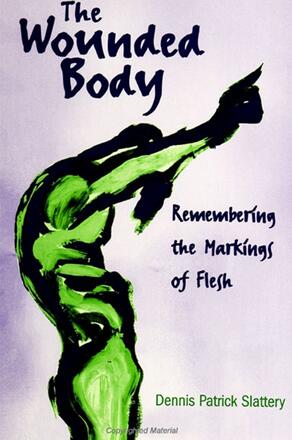
The Wounded Body
Remembering the Markings of Flesh
Alternative formats available from:
Explores the wounded body in literature from Homer to Toni Morrison, examining how it functions archetypally as both a cultural metaphor and a poetic image.
Description
An almost obsessive interest in the human body in literary and psychological theory over the past ten years has uncovered not just the physical body but the body as metaphor, political emblem, social construction, and symptom. The Wounded Body builds on this recent interest in the body by providing an ambitious interdisciplinary exploration of the wounded body in literature from Homer to Toni Morrison. Guided by insights from phenomenology to Jungian archetypal psychology, Dennis Slattery argues that the body in its scarred, marked, diseased, tattooed, or otherwise afflicted state is not only an individual phenomenon but, in the hands of the poet, a cultural symptom, a place of suffering, as well as a way of seeing and ordering the experience of the one who is wounded.
Dennis Patrick Slattery is Interdisciplinary Coordinator and Core Faculty Member, the Mythological Studies Program, Pacifica Graduate Institute. He is the author of The Idiot: Dostoevsky's Fantastic Prince.
Reviews
"Slattery is a master at the art of revealing how body and psyche are held together by delicate strands." — The San Francisco Jung Institute Library Journal
"Slattery's approach is mythological (and phenomenological), and so his conception of the body, embodiment, incarnation, and wounding has important religious ramifications that would, I imagine, be disputed by the sort of skeptical ideological criticism so prevalent today. But it is precisely this distinctive approach—largely Jungian and archetypal in inspiration—that I think has value, and it is one that has been unfortunately neglected and unfairly dismissed by the mainstream of today's criticism." — Joseph Adamson, author of Melville, Shame, and the Evil Eye
"Through wisely chosen narratives, Slattery reveals a literary life of gesture and feeling, pain and remembering, that also evokes the soul of our own bodies in the imagining of their inevitable wounds. The Wounded Body, so closely attuned to the archetypal psychology of Western epic, masterfully and passionately conducts us to treasures of meaning deep within the metaphors of those magnificent citadels of our incarnation." — Daniel C. Noel, author of The Soul of Shamanism: Western Fantasies, Imaginal Realities